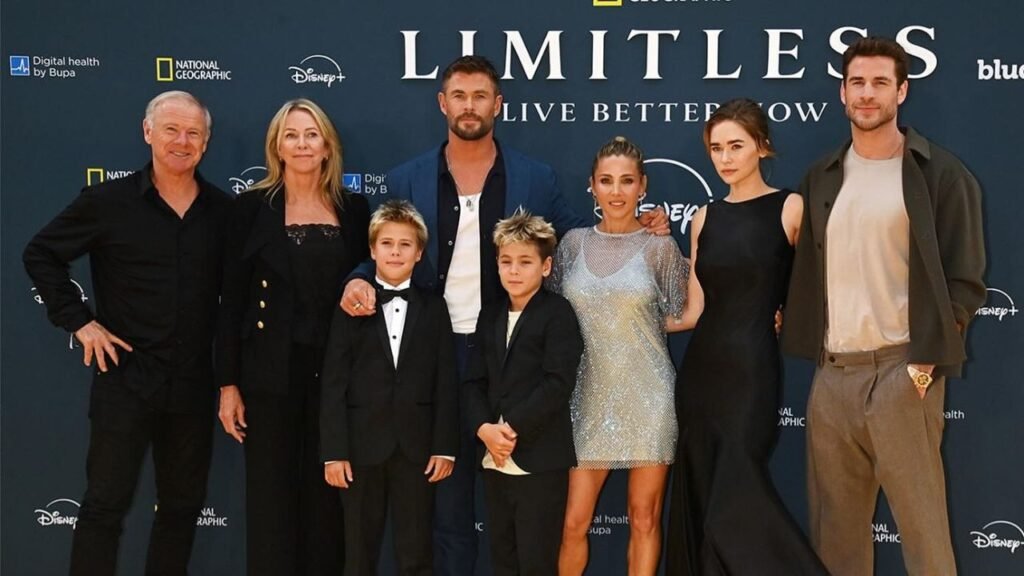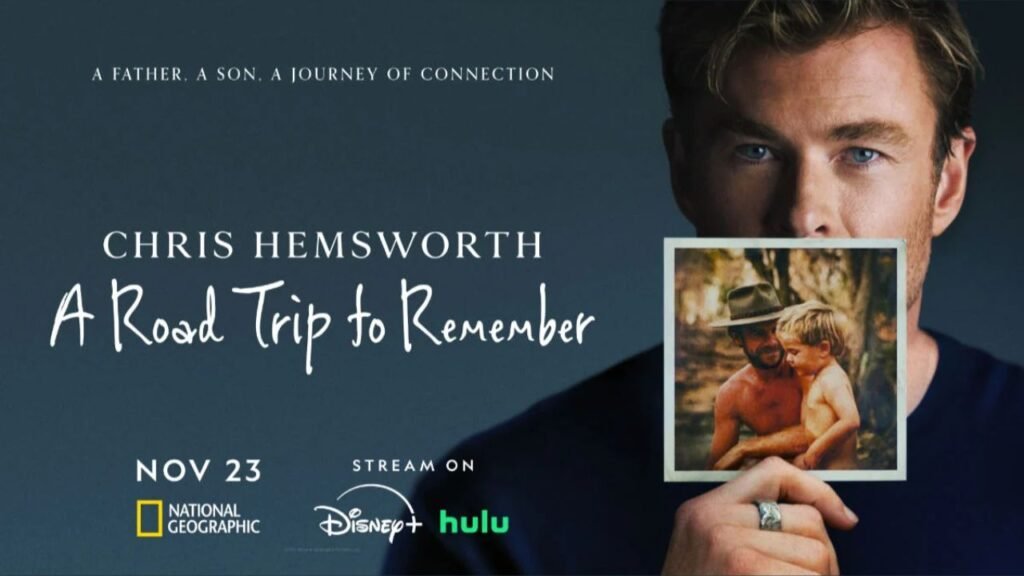Chris Hemsworth has always been admired for his powerful on-screen roles, but behind the Hollywood spotlight lies a deeply personal battle. The Thor actor recently opened up about his father’s struggle with Alzheimer’s disease and his own genetic risk of developing it. This revelation has made headlines and raised awareness about brain health across the world. In this blog, we’ll dive into everything about Chris Hemsworth Alzheimer’s disease, his family’s emotional journey, his efforts to fight the illness, and what science says about his genetic condition.
Table of Contents
- Chris Hemsworth Alzheimer’s Disease
- Does Chris Hemsworth Have Alzheimer’s Disease?
- Chris Hemsworth’s Emotional Connection with His Father
- The Science Behind Chris Hemsworth’s Alzheimer’s Risk
- Chris Hemsworth’s Efforts to Raise Awareness
- Chris Hemsworth’s Lifestyle Changes After Learning His Risk
- The Role of Family Support in Chris Hemsworth’s Journey
- How “A Road Trip to Remember” is Changing Perspectives
- Final Thoughts on Chris Hemsworth Alzheimer’s Disease
Chris Hemsworth Alzheimer’s Disease
In October 2025, Chris Hemsworth revealed that his father, Craig Hemsworth, was diagnosed with early-onset Alzheimer’s disease. The actor, known for his dedication to family, shared the heartbreaking news through a trailer for his upcoming National Geographic documentary A Road Trip to Remember. The documentary follows Chris and his father on a motorcycle journey across Australia, retracing their past memories from Melbourne to the Northern Territory.
In the trailer, Chris said,
“I want to do everything I can to help him. Turns out this experience could help fight the disease.”
Through this emotional road trip, he aims to reconnect with his father while also contributing to research on how memory, nostalgia, and emotional connection can support brain health. Fans of emotional celebrity stories might also enjoy reading about Aaron Pierre’s family, another inspiring Hollywood connection.
Does Chris Hemsworth Have Alzheimer’s Disease?
Many fans have been wondering, does Chris Hemsworth have Alzheimer’s disease? The answer is no — Chris does not currently have Alzheimer’s disease, but he does have a significantly increased risk of developing it in the future.
During the filming of Limitless: Live Better Now for National Geographic, Chris underwent genetic testing that revealed he carries two copies of the APOE4 gene. This gene variant is closely linked to Alzheimer’s, and having two copies increases a person’s likelihood of developing the disease by eight to ten times compared to the general population. Only about 3% of people in the world have this double genetic marker.
When he discovered this, Chris admitted that it was one of the most emotional moments of his life. He shared that the idea of one day forgetting his wife, Elsa Pataky, and their three children is his “biggest fear.” Since then, he has made major lifestyle changes to protect his brain health and raise awareness for others. You can also check out how other stars balance fame and family in our blog on Leonardo DiCaprio’s kids and wife.
Chris Hemsworth’s Emotional Connection with His Father
The news of Chris Hemsworth Alzheimer’s disease became even more personal after his father’s diagnosis. Craig Hemsworth, a retired social services counselor, has been a major influence in Chris’s life. Their bond grew stronger during the filming of A Road Trip to Remember, where they revisited old memories from the Northern Territory, where Chris spent much of his early childhood.
The documentary focuses on reminiscence therapy, the idea that revisiting old places and memories can help slow cognitive decline. National Geographic explained that the journey was designed to rekindle positive emotions and memories, an essential part of maintaining mental health for Alzheimer’s patients.
Chris has often spoken about how his father inspired him to remain grounded despite fame. He told Hola! that his dad worked long hours to provide a good life for his family, describing him as one of his “heroes.” Now, Chris wants to return that care by being there for his father as he faces Alzheimer’s.

The Science Behind Chris Hemsworth’s Alzheimer’s Risk
The APOE4 gene that Chris Hemsworth carries is one of the most studied genetic factors linked to Alzheimer’s disease. People with one copy of the gene are at a slightly increased risk, while those with two copies, like Chris, are much more likely to experience memory decline as they age.
However, scientists emphasize that having the gene doesn’t guarantee Alzheimer’s, it only increases susceptibility. Lifestyle, diet, physical fitness, and emotional health also play a major role. That’s why Chris has shifted his focus toward healthy living, both physically and mentally.
Chris Hemsworth’s Efforts to Raise Awareness
Chris Hemsworth has taken his experience as an opportunity to spread awareness about brain health and the importance of early detection. His new documentary, A Road Trip to Remember, explores themes such as social connection, nostalgia, and mental stimulation, all proven to help reduce the risk of Alzheimer’s and other forms of dementia.
Dr. Suraj Samtani, a dementia specialist at the University of New South Wales, collaborated on the project. According to Samtani, social connections and emotional engagement can significantly lower the risk of memory-related decline. Regular social interaction, volunteering, and reconnecting with one’s past have all been linked to better cognitive function in older adults.
Chris Hemsworth’s Lifestyle Changes After Learning His Risk
After learning about his genetic predisposition, Chris made several important lifestyle changes. He took a break from acting to spend more time with his family and focus on mindfulness, meditation, and brain health. He revealed that he now prioritizes stress management, balanced nutrition, regular exercise, and quality sleep, all scientifically linked to lower dementia risk.
Chris also practices gratitude and memory exercises as part of his daily routine. These habits not only help reduce anxiety but also strengthen the mind. His decision to be proactive has inspired many fans who face similar family histories of Alzheimer’s.

The Role of Family Support in Chris Hemsworth’s Journey
Chris Hemsworth’s wife, Elsa Pataky, and his brothers, Luke and Liam Hemsworth, have been his pillars of strength. The Hemsworth family has always been close-knit, and this new challenge has only deepened their connection.
Elsa has publicly shared how proud she is of Chris for using his platform to educate others about genetic awareness. Their three children: India Rose, Sasha, and Tristan are also a key motivation for Chris to maintain his health and stay mentally sharp. Similarly, explore Patrick Wilson’s life to see how family inspires another Hollywood star’s career.

How “A Road Trip to Remember” is Changing Perspectives
A Road Trip to Remember is more than just a documentary — it’s a message of hope. By showing his father’s journey, Chris highlights how meaningful experiences can spark memory and improve mental well-being, even in the face of Alzheimer’s disease.
The documentary explores how simple things like revisiting old photos, watching home videos, or returning to childhood places can evoke powerful emotions that keep the brain active. This technique, known as reminiscence therapy, is increasingly used by dementia specialists around the world.

Final Thoughts on Chris Hemsworth Alzheimer’s Disease
The story of Chris Hemsworth Alzheimer’s disease is both heartbreaking and inspiring. It reminds us that even the strongest heroes face personal battles, and awareness is the first step toward prevention. While Chris does not currently have Alzheimer’s disease, his genetic risk and his father’s diagnosis have motivated him to take meaningful action.
Through his advocacy, documentaries, and personal lifestyle changes, Chris Hemsworth continues to inspire millions to prioritize mental health and cherish their loved ones. His journey is proof that with awareness, science, and emotional connection, we can all take steps to protect our memories and our minds.
